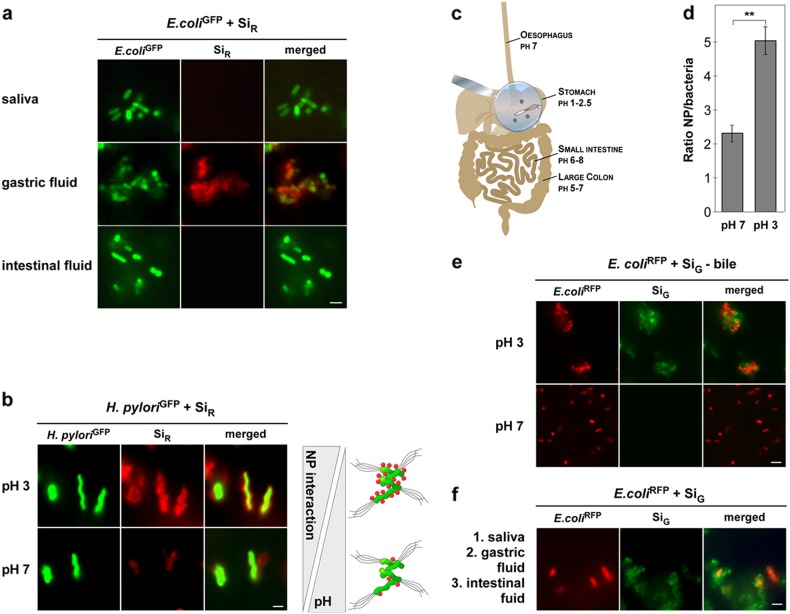Fig. 4.
Environmental conditions of the oro-gastro-intestinal route affect NP–bacteria complex formation. a NP–bacteria complex formation is inhibited by biomolecule coronas forming in saliva or intestinal fluid, which could be overcome by incubation in acidic gastric fluid. b Acidic pH enhances NP adsorption to bacteria. H. pylori cells were incubated with SiR at pH 7 in PBS or pH 3 in artificial gastric juice and analyzed by live cell microscopy. Corona-covered NP–bacteria complex formation increased with low pH. c Illustration of pH variations along the oro-gastro-intestinal route. d Quantification of pristine SiR (red)—H. pylori (green) complex formation by automated microscopy at indicated pH. A minimum of 1000 NP–bacteria complexes/well was analyzed for green and red fluorescence using the TargetActivation assay. Columns show the mean ± s.d. from three independent experiments. Assays were performed in triplicates. e Exposure of NPs to intestinal bile extract (pH 7, lower panel) reduced complex formation with bacteria, which could be restored by acidic pH (pH 3, upper panel). f Sequential exposure of NPs and bacteria in the respective physiological fluids demonstrated that bacteria exposed to saliva still adsorbed to NPs in acidic environments, and complexes remained stably associated in intestinal fluid. Scale bars 2 µm. All images are representative of three independent experiments

